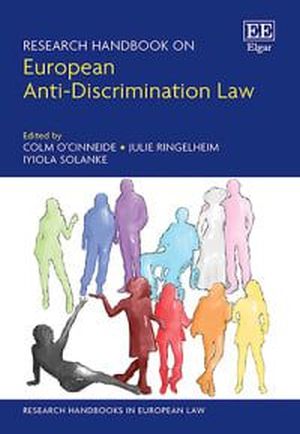
This Research Handbook provides a comprehensive overview of European anti-discrimination law, outlining developments in both international and national law, as well as in EU law and the case-law of the European Court of Human Rights. Critically assessing both legal doctrine and social impact, it describes and analyses emerging trends in this dynamic area of law.
Leading experts compare the case-law of the European Court of Human Rights and the EU Court of Justice, examining core concepts ranging from direct and indirect discrimination to harassment, intersectional discrimination and reasonable accommodation. Chapters explore specific topics such as positive action, migration policy and the threat of algorithmic discrimination, as well as shedding light on protected characteristics such as disability, ethnicity, religion, sex and sexual orientation. Contributors analyse the impact of relevant EU equality bodies as well as human rights treaties such as the European Social Charter, consider critical race theory, and challenge perspectives on binaries around gender and sex. They also assess the effectiveness of civil enforcement measures and analyse case-law relating to environmental discrimination, economic inequalities and other areas of concern.
The Research Handbook is an essential resource for students, academics and researchers specialising in anti-discrimination law, European law and human rights law, and is also greatly beneficial to socio-legal scholars and government officials.